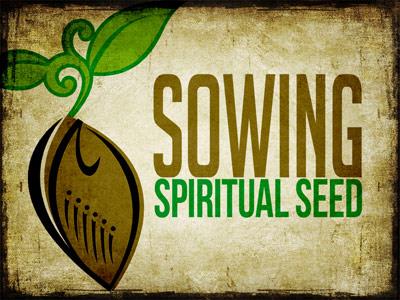-
Mustard-Flavored Parable
Contributed by Troy Borst on Sep 15, 2005 (message contributor)
Summary: Parable of the mustard seed and yeast
THE MUSTARD FLAVORED PARABLE
[This sermon will use actaul mustard teach the parable. A way for every listener to taste mustard is needed. Or not. That’s up to you.]
INTRODUCTION... Reflections On Mustard
Mustard is one of the oldest condiments in the world (http://en.wikipedia.org/wiki/Mustard). Did you know that? They have found mustard in Egyptian tombs and it is included in old stories from India as well. Prepared mustard is a thick condiment, a yellow or yellow-brown paste with a sharp taste that is prepared from the ground mustard seeds, by mixing them with water, vinegar or other liquids, and adding ingredients such as flour. A strong mustard can cause the eyes to water, burn the palate and inflame the nasal passages. For this reason, mustard is an acquired taste. The Romans most likely developed the prepared mustards we know today. They mixed unfermented grape juice, known as "must" with ground seeds (called sinapis) to form "mustum ardens", or "burning must".
What do we look for when tasting mustard (www.globalgourmet.com/food /egg/egg0796/musttast.html)? Although taste is largely subjective, there are certain objective criteria to consider when evaluating the condiment. The mustard should be entirely pleasant. It should be somewhat acidic, but not overly so, and it should not be too salty. Its flavors should be well-balanced, with no single element dominating. If it is sweet, sugar should not be the predominant taste, merely an element of the whole. The texture should be smooth or, in the case of coarse-grain mustard, pleasantly grainy, not gritty or hard. It should have a fairly thick consistency, so that it easily holds its own shape on a spoon, but it should not be so thick as to be cloying or tongue-coating. Mustard should not taste floury, musty, or metallic, nor should it taste or smell eggy. Even if it is hot, it should not burn the tongue. Mustard always should have a pleasant aftertaste, a harmonious finish on the palate as the flavors fade together. If it vaporizes so that your eyes water and forehead sweats but you are eager for more, consider yourself lucky and be sure to write down the name of that mustard.
I want us to taste this mustard. I hope that I have enough for everyone to get a taste of what mustard is like. You may like mustard. If you are like me, you would rather eat rocks, but, it is an aquired taste. There are several things that I would like to point out about mustard.
PASS OUT MUSTARD AND HAVE THEM TASTE
First, the immediate taste of mustard is quite noticeable. The taste of mustard is strong and powerful, is it not? Some of you probably smelled the mustard as you entered the sanctuary today and wondered why you smelled that particular odor. There are very few seconds from the time you put mustard in your mouth until your brain registers exactly what it is. Mustard is quite noticeable.
Second, I would also say that the taste of mustard is unique. There is nothing quite like mustard. I realize that there are different types of mustard from all around the world, but msutard is a unique flavoring. You could probably describe a dish made with mustard to someone half-way across the world and they would understand how it would taste. Mustard is unique.
Third, the taste of mustard permeates anything that it is added to. You may have a chicken meal or perhaps a deli sandwich that tastes a certain way, but when you add the mustard, what does it taste like? It tastes like the mustard. The flavor of the mustard takes over whatever it is added to. You could have a peanut-butter and jelly sandwich and add mustard and the sandwich would taste like mustard. I know, gross. Mustard permeates everyting.
Fourth, the taste of mustard is memorable. I remember those meals that were made with mustard. Mustard crusted chicken, mustard glazed pork, and so on. I remeber those meals and I do not have a fondness when I think of them. Of course, I do not like mustard. Those of you who love mustard would have enjoyed those meals. But, the important thing is that I remeber them because mustard is memorable.
Why all this talk about mustard? Let’s read.
READ MATTHEW 13:31-35
Jesus speaks to the people in parables (verse 34). What is a parable? A parable is a short story or narrative that has two levels of meaning. A parable is a simile and an example and a metaphor all at the same time. Jesus did not invent parables, but used them when teaching and especially used them when He spoke about the Kingdom of God (IVP, Dictionary of Jesus and the Gospels, pgs 591-594). Jesus was trying to relay complicated spiritual matters in a way that anyone could understand them if they wanted to. The Apostle Matthew includes an Old Testament quote from Psalms that speaks of utterances and parables and hidden truths. Jesus taught the people spiritual truths and did so by using story and imagery.

 Sermon Central
Sermon Central



